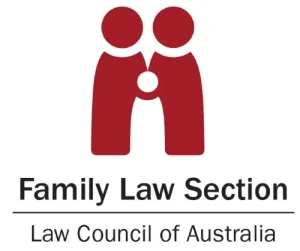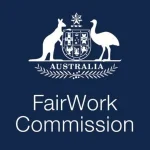Disputed Estates
Specialised inheritance lawyers for contesting a Will in Australia
- Disputed Estates – Have you been unexpectedly left out of Will?
- Did your loved one have an outdated Will that didn’t include you?
Successfully contesting a Will is possible with our highly experienced Inheritance Lawyers who service Adelaide, regional South Australia.
Your first step in an Estate Dispute Matter – Speak with Boylan Lawyers today.
You may also be interested in Asbestos & Dust Disease.
Bolan Wills & Estate Lawyers
YOUR EXPERIENCED LAWYERS FOR CONTESTING WILLS
How to contest a Will
What do I do if I've been left out of a Will?
If you are a family member who has been left out or not provided for adequately in a deceased estate and Will, then you need to act now to find out what can be done to protect your interests and financial position.
Boylan Lawyers understand the intricate problems that can arise if a Will maker did not properly organise their Estate or make adequate provisions for their estate to look after their spouse, de facto partner, children, adopted children or dependant.
There are strict time limits for contesting a Will under South Australian Law. Inheritance claims on a deceased’s Estate can only be made 6 months from the date of a Grant of Probate. If you have a claim, or think you might have a claim, then it is important to seek legal advice from a specialist inheritance lawyer as soon as possible so you can properly build your case for further provision from the estate.
The top 6 reasons for contesting a Will in South Australia:
When a deceased person leaves behind assets, disagreements between the living can often arise, whether or not a Will is in place. Sometimes disagreements can intensify precisely because there is a Will in place.
As one of the leading Estates practices in Adelaide SA with highly experienced lawyers for inheritance disputes, we have seen just about every problem and family provision claim. This means we are able to predict with some certainty the ranges of outcomes that the Supreme Court may reach should any given dispute go all the way to trial – which, thankfully, is the minority of cases involving deceased estates (probably less than 5%).
The larger the Estate, the more grounds for contesting a Will.
If the deceased person leaves behind a large Estate, there’s usually more animosity between family members and any eligible person to the assets. The more legal issues that may be involved in the matter, the more likely it will “drag out”. This can prove costly to the deceased’s Estate and as a consequence to the Beneficiaries who are to (hopefully) share in the Estate.
There are many grounds for contesting a Will in South Australia. Here are the top 6 most seen by our experienced Will Dispute Lawyers in Adelaide, wider SA and Tasmania.
1. The Executors are unduly delaying in applying for Probate
One of the primary roles of Executors is to obtain a grant of Probate, which then allows them to officially administer the Estate and divide the Estate assets among family members and any other eligible person. There is no legal time frame required, although there is a rule of thumb called “the Executor’s year” which assumes that Executors have up to a year to apply for Probate.
Any longer than this, then expectant Beneficiaries may apply to the High Court to seek an order compelling the Executor to apply for Probate within a given timeframe.
2. The Beneficiaries cannot agree on what is to happen to the Estate property
Most Estates in South Australia comprise the family home, invariably freehold, some investments and personal effects. While the investments and personal effects can (hopefully) be dealt with without too much dispute and delay, the family home is often the main reason for contesting a Will. One or more Beneficiaries may wish to retain the property, while others may be looking to sell the same household for some much wanted or needed cash.
A Will may give certain Beneficiaries an option to purchase the family home from the deceased Estate within a certain time frame, which you would think would short circuit most disputes (depending on the clarity of the relevant clauses in the Will).
However, even if there is no such option spelled out in the Will, there is no reason why a Beneficiary or Beneficiaries cannot agree to buy the other Beneficiaries out – provided all parties can agree on a value or a valuer who can conduct a valuation. Once this is agreed, the agreement can be set out in a Deed.
Our experienced estate dispute lawyers can provide professional advice to guide you through the process to bring the matter to a resolution.
3. There have been unauthorised or unfair transfers of assets during the life of the deceased
It is common for a Testator (the person making their Will) to appoint a seemingly trusted child or other relative as their Attorney under a Power of Attorney as well as being their Executor.
When the Testator dies, disputes sometimes arise where Beneficiaries believe there have been unauthorised or suspicious transfers of assets (for example, bank monies and even land) during the lifetime of the deceased, resulting in a reduction of the Estate to be divided upon death.
What can often follow in such disputes is a forensic exercise of working out which transfers were authorised or lawful and a “clawing back” of any unauthorised transfers back into the Estate. The Executor may be removed from their role as Executor or still allowed to apply for Probate but on the basis that they receive a lesser share in the Estate and the other Beneficiaries a proportionally larger share.
4. The Executor appointed under a Will has apparently influenced the Executor in making the appointment or received a greater benefit than the other Beneficiaries
As people get older, they increasingly rely on apparently trusted members of their family to take them shopping, or to doctors’ appointments, the bank and, of course, to lawyers’ offices for the purpose of getting their Estate planning in order.
Some situations may be entirely proper and above board, while other situations may later be proved to be ones in which there has in fact been undue influence or duress brought to bear by the Executor or Beneficiary upon the Testator to make their Will a certain way.
Whether such a situation makes the Will invalid or otherwise challengeable depends on the facts of each case. If the Will is proved invalid, then an earlier Will (if available) prevails, and if there is no earlier Will, then the deceased is said to have died “intestate” (without a Will) and therefore the State decides how their Estate is to be divided.
Most of these cases resolve in an agreement between the interested parties, with or without the approval of the Court, to alter some of the terms of the will but otherwise leaving the Will intact.
This area of contesting a Will can be complex. Our experienced Will Dispute Lawyers in Adelaide and throughout South Australia will be able to provide trusted legal advice and assistance throughout the process.
5. Will kit Wills
If a Will is prepared by a law firm, especially a law firm with experience and expertise in Estate Planning, it is safe to say that there is a lower probability that the validity of the document will be disputed later on (although the provisions of the Will may still result in an inheritance claim where a Beneficiary asserts they have been left with inadequate provision).
However, the same cannot be said for Will kit Wills (also called “DIY Wills” or “homemade Wills” or “informal Wills”). It is our experience that the majority of home made Wills have one or more problems present, from ambiguity in the terms of the Will, to doubts in terms of how the document was executed by the deceased and whether it was properly witnessed, to issues of undue influence or duress (referred to above) or even forgery.
The more unusual, or suspicious or error-riddled a Will is, the more grounds for contesting a Will. This is one of the main reasons why Will kit Wills must be avoided at all costs.
As with other Estate disputes, a Will kit Will dispute can often be resolved on the basis that the Will is deemed invalid, or otherwise valid but the terms of the Will are varied by agreement or as ordered by the Supreme Court.
6. Inadequate Family Provision
Freedom of testation means a person is able to leave their estate to anyone they deem suitable. However, this can be considered unreasonable by the Court if a Will maker has breached their moral obligation of making an adequate provision for a spouse, child, adult child or dependant.
When contesting a Will on a family provision claim, a person will need to prove eligibility as a dependent as per the Succession Act. This means a person would need to demonstrate that they were being entirely or partially supported by the deceased up until the date of death.
Our Estate Dispute Lawyers are here for you
Most Estate disputes and Family Provision claims can be avoided, before the death of the Testator, in the lawyer’s office when the Testator makes his or her Will. This is because a lawyer will ask the right questions, provide the right advice and obtain the deceased’s proper instructions in making their Will.
Some Estate disputes are simply unavoidable, because human nature can often get in the way of the execution of an otherwise sound Estate plan. Many more Estate disputes are inevitable because there has been bad, or non-existent, Estate planning in the first place.
As Wills and Estate lawyers, our role is to act in the best interests of our client, whoever they may be in the dispute, by giving them independent and considered advice, and assisting them reach an outcome that is just and equitable and as quickly and cost-efficiently as possible.
Our experienced Estate Dispute Lawyers in Adelaide, through wider SA and in Tasmania can help if you are involved in contesting a Will. Our legal assistance can potentially stop your legal matter from getting out of hand and end up costing you or the Estate more money than it is worth.
What are the legal fees for contesting a Will?
If you have a reasonable claim, then legal costs will usually get paid upon the settlement of the matter. This is because in most cases the cost of a claim is paid from the Estate. If you would like more information, please contact us and our seasoned lawyers in Will Disputes in Adelaide, SA and Tasmania will advise accordingly.
There is no risk in asking a question and our discussions are always confidential.

















